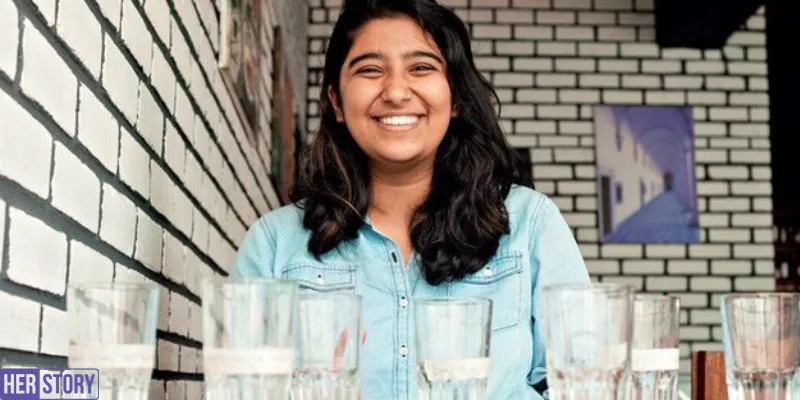As a Class 10 student, 15-year-old Garvita Gulhati came across this alarming piece of information: on an average, 14 million litres of water are wasted every day, just through the water we leave behind in glasses in restaurants.
It’s a common habit most of us hardly take notice of. But one that Garvita made it her mission with Why Waste, the initiative she founded in 2015.
She started off with the glass half-full idea and took it to restaurants. From there, the NGO helped optimise water usage across industries, offices, NGOs, and other places.
Today, Garvita is 19 years old and her efforts in environmental conservation and awareness continue.

In a Community Chat on the HerStory Facebook page, Garvita Gulhati, the Founder of Why Waste, shared her thoughts on Combating Climate Change: What You Can Do As An Individual with community members.
Here are some excerpts from the conversation.
Q: While the move to ban single-use plastic is laudable, there is so much plastic around us. How can we, as individuals, minimise its use in our daily lives?
A. Reduce, reuse, and refuse! And of course, whatever already existing stuff you see, recycle!
Q. Older adults are more reluctant to make changes in their habits. How do we get the point across to them that overusing plastic and other harmful materials cause serious damage?
A. Try to explain to them in their style. Keep giving them examples and instances; try to make them understand through their own surroundings. Adults have seen the transition of a world where they were no plastic to what it is today.
Make them remember the better and healthier times, and how we can get that back if everyone does their bit!
Q. The alternatives to plastic are generally more expensive and out of reach of the common man, say aluminium/steel buckets instead of plastic buckets. What then, can be done?
A. Here’s where we need to find a balance between economy and ecology. A simple idea could be – subsidised rates. Just like how general ration is provided at a lower rate, so could sustainable products.
Q. Individuals can make changes in their lives, but it’s the large corporations that have a bigger hand in the climate crisis. How can we influence them, knowing that they are money hungry and don’t really care about the impact their production is having on the planet?
A. Every large corporation is run by an individual or a group of individuals. It is them who we need to influence. As Changemakers, we need to be patient, and explain to them what really is going wrong. Tell them their kids won’t have a future – that could be a trigger!
Moreover, we are individuals who are using their products and services. If we stop using unethical products, they won’t have a choice but to shut down.
Q. How can India become clean and conscious? Our population is growing and the need for resources is only increasing. How does a country like India protect its environment?
A. It will happen when each and every person is physically doing their bit to make a difference. We need people to show more action now, since the activism has almost reached a peak. Living in tandem with the environment (including creatures other than human beings) rather than creating uncountable structures that are destroying it will help us survive better. This is also much better for the health of the citizens.
It’s our job as changemakers to make people understand the importance of everyone doing their bit. Never lose hope because we are the only ones who can make a difference.
As rightful tenants on this planet, it is our duty to give back to our Mother Earth everything that she has given us and that’s all you’ve got to believe in!
Q. What actions can we take at home to help the cause?
A. Every small thing counts. From the time you wake up, use just half a glass of water to brush your teeth. Take a bucket bath – with just as much water as you need.
Finish every bit of food that you take on to your plate. Avoid any kind of plastic; eat foods that are healthy, environmentally and for you as well.
Q. Existing plastic bags/bottles only become microplastics and do not decompose. And so, I feel there is no harm in using the existing ones multiple times before they are thrown away. What can I do in this case, not to worsen climate change?
A. Anything that does not decompose is poison to this planet. The world has been created so that everything lives symbiotically. But humans and their ways have created a parasitic existence and using plastics is one of the biggest problems we have created.
If something does not decompose, it means it is not entering the biological cycles and is most definitely harmful.
(Edited by Teja Lele Desai)

